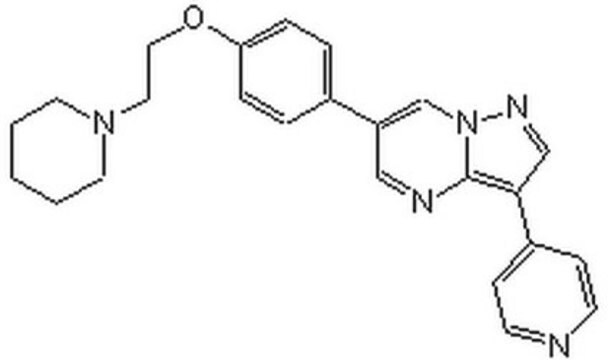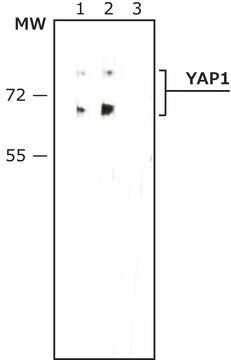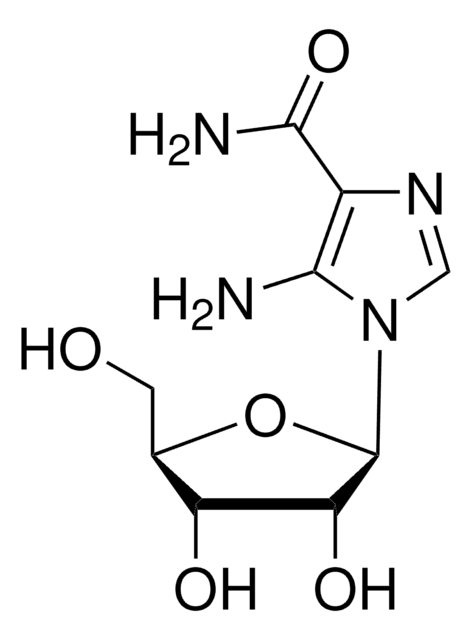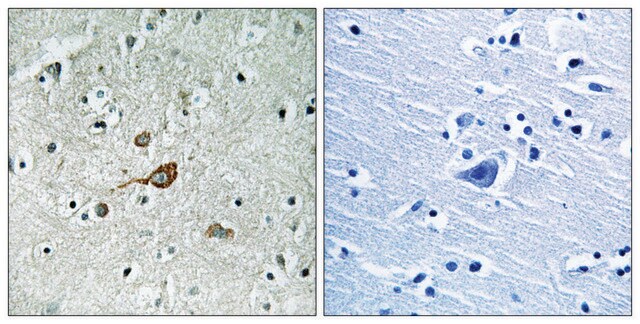Y4645
Anti-phospho-YAP1 (pTyr357) antibody produced in rabbit

~1.5 mg/mL, affinity isolated antibody, buffered aqueous solution
Synonym(s):
Anti-YAP, Anti-YAP2, Anti-YAP65, Anti-Yes-associated protein 1, 65kDa
About This Item
Recommended Products
biological source
rabbit
Quality Level
conjugate
unconjugated
antibody form
affinity isolated antibody
antibody product type
primary antibodies
clone
polyclonal
form
buffered aqueous solution
mol wt
antigen ~65 kDa
species reactivity
human
packaging
antibody small pack of 25 μL
enhanced validation
recombinant expression
Learn more about Antibody Enhanced Validation
concentration
~1.5 mg/mL
technique(s)
indirect immunofluorescence: 5-10 μg/mL using HEK-293 cells co-transfected with human YAP1 and c-Abl
western blot: 0.5-1 μg/mL using HEK-293T cells co-transfected with human YAP1 and human c-Abl
UniProt accession no.
shipped in
dry ice
storage temp.
−20°C
target post-translational modification
phosphorylation (pTyr357)
Gene Information
chicken ... YAP1(396171)
human ... YAP1(10413)
mouse ... Yap1(22601)
Related Categories
General description
Specificity
Immunogen
Application
Biochem/physiol Actions
Anti-phospho-YAP1 pTyr357 antibody is specific for human phospho-YAP1 pTyr357. The product may react with chicken and mouse phospho-YAP1 pTyr357. In immunoblotting, staining of the phospho-YAP1 (pTyr357) band is specifically inhibited by the immunizing peptide; but no inhibition is observed with the unmodified peptide.
Physical form
Disclaimer
Not finding the right product?
Try our Product Selector Tool.
related product
Storage Class Code
10 - Combustible liquids
WGK
WGK 1
Flash Point(F)
Not applicable
Flash Point(C)
Not applicable
Regulatory Listings
Regulatory Listings are mainly provided for chemical products. Only limited information can be provided here for non-chemical products. No entry means none of the components are listed. It is the user’s obligation to ensure the safe and legal use of the product.
JAN Code
Y4645-BULK:
Y4645-200UL:
Y4645-VAR:
Y4645-100UL:
Y4645-25UL:
Certificates of Analysis (COA)
Search for Certificates of Analysis (COA) by entering the products Lot/Batch Number. Lot and Batch Numbers can be found on a product’s label following the words ‘Lot’ or ‘Batch’.
Already Own This Product?
Find documentation for the products that you have recently purchased in the Document Library.
Our team of scientists has experience in all areas of research including Life Science, Material Science, Chemical Synthesis, Chromatography, Analytical and many others.
Contact Technical Service







